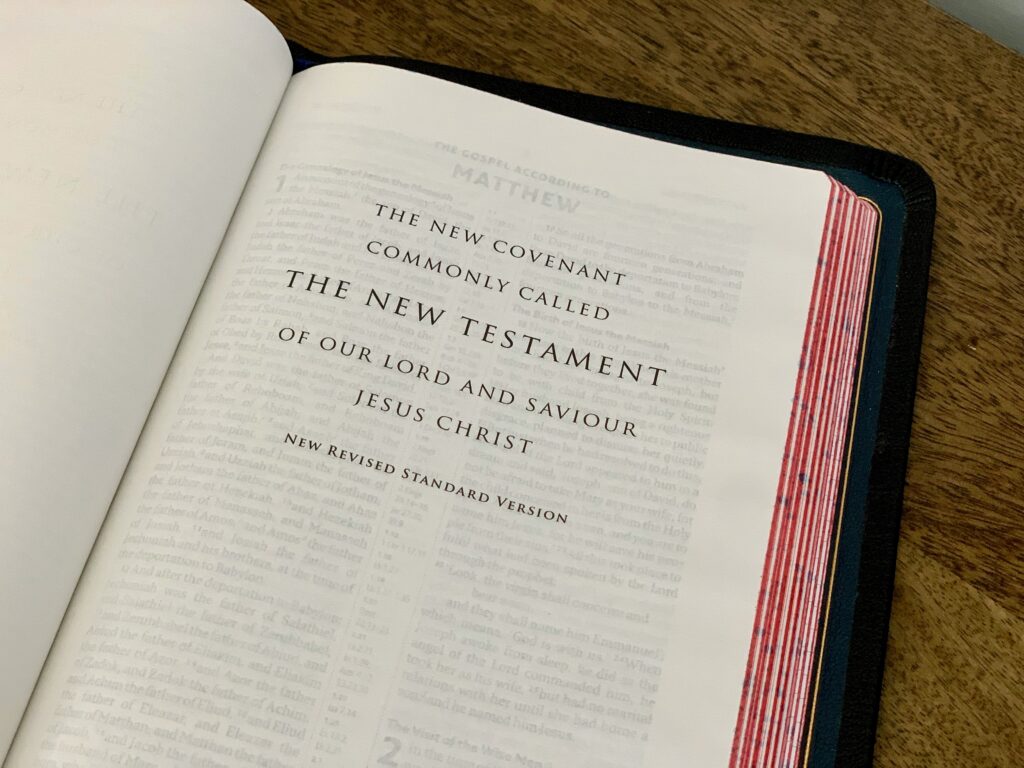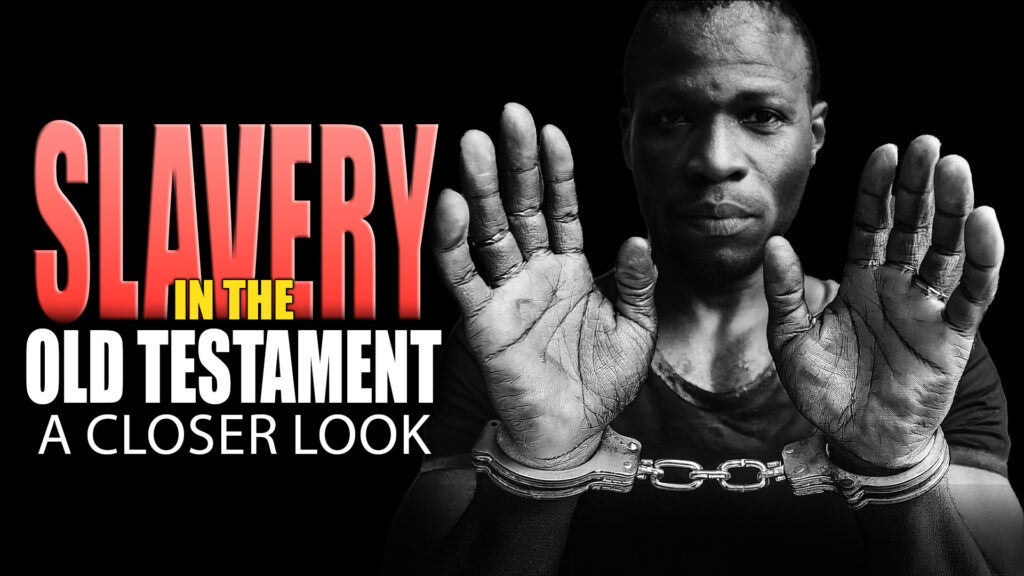
By Sam Shamoun (Original article 1, 2, 3)
“The links to this article are old, so be mindful of that.” – AC
Bassam Zawadi accuses the Apostle Paul of admitting that he used craftiness. He cites 2 Corinthians 12:16 and says:
2 Corinthians 12:16
Be that as it may, I have not been a burden to you. Yet, crafty (panourgos) fellow that I am, I caught you by trickery (dolos)!
Paul refers to himself as a ‘crafty’ fellow. The word in Greek is panourgos, which could mean…
1) skilful, clever
a) in a good sense, fit to undertake and accomplish anything, dexterous, wise, sagacious, skilful
b) in a bad sense, crafty, cunning, knavish, treacherous, deceitful
Source: http://www.blueletterbible.org/tmp_dir/words/3/1141669110-6606.html
Obviously Christians will tend to go for definition ‘a’, which states that it is cleverness in a good sense. However, when we read the rest of the verse…
Be that as it may, I have not been a burden to you. Yet, crafty (panourgos) fellow that I am, I caught you by trickery (dolos)!
The word for trickery here is dolos, which could mean…
After citing verses showing how these words are used negatively he concludes:
As we can see this word is always being used negatively. This is the very thing that Paul claimed to have done. Does this make Paul guilty of deception? Jesus himself says in Mark 7:22 that it is a sin and that it is something that makes someone unclean from inside (verse 23).
RESPONSE:
What Zawadi didn’t mention to his readers is that in this very epistle Paul goes out of his way to deny that he used lies or deception:
“For our boast is this: the testimony of our conscience that we behaved in the world with simplicity and godly sincerity, not by earthly wisdom but by the grace of God, and supremely so toward you.” 2 Corinthians 1:12
“For we are not, like so many, peddlers of God’s word, but as men of sincerity, as commissioned by God, in the sight of God we speak in Christ.” 2 Corinthians 2:17
“but as servants of God we commend ourselves in every way: by great endurance, in afflictions, hardships, calamities, beatings, imprisonments, riots, labors, sleepless nights, hunger; by PURITY, knowledge, patience, kindness, the Holy Spirit, genuine love; BY TRUTHFUL SPEECH, and the power of God; with the weapons of righteousness for the right hand and for the left; through honor and dishonor, through slander and praise. We are treated as impostors, AND YET ARE TRUE; as unknown, and yet well known; as dying, and behold, we live; as punished, and yet not killed; as sorrowful, yet always rejoicing; as poor, yet making many rich; as having nothing, yet possessing everything.” 2 Corinthians 6:4-10
“Make room in your hearts for us. We have wronged no one, we have corrupted no one, we have taken advantage of no one.” 2 Corinthians 7:2
“but we have renounced the things hidden because of shame, NOT WALKING IN CRAFTINESS (panourgia) or adulterating the word of God, but by the manifestation of truth commending ourselves to every man’s conscience in the sight of God.” 2 Corinthians 4:2 NASB
Note that in the last text Paul clearly denies having walked in or used craftiness! And Paul writes in another epistle:
“For you yourselves know, brothers, that our coming to you was not in vain. But though we had already suffered and been shamefully treated at Philippi, as you know, we had boldness in our God to declare to you the gospel of God in the midst of much conflict. For our appeal does not spring from error or impurity or any attempt to deceive (doloo), but just as we have been approved by God to be entrusted with the gospel, so we speak, not to please man, but to please God who tests our hearts. For we never came with words of flattery, as you know, nor with a pretext for greed–God is witness. Nor did we seek glory from people, whether from you or from others, though we could have made demands as apostles of Christ. But we were gentle among you, like a nursing mother taking care of her own children. So, being affectionately desirous of you, we were ready to share with you not only the gospel of God but also our own selves, because you had become very dear to us. For you remember, brothers, our labor and toil: we worked night and day, that we might not be a burden to any of you, while we proclaimed to you the gospel of God. You are witnesses, and God also, how holy and righteous and blameless was our conduct toward you believers. For you know how, like a father with his children, we exhorted each one of you and encouraged you and charged you to walk in a manner worthy of God, who calls you into his own kingdom and glory.” 1 Thessalonians 2:1-12
Here, Paul even denies that he used dolos!
These passages should have given Zawadi a hint that he may have misunderstood something here. In light of the foregoing let us now look at the immediate context of 2 Corinthians 12 to get the bigger picture:
“I have been a fool! You forced me to it, for I ought to have been commended by you. For I was not at all inferior to these super-apostles, even though I am nothing. The signs of a true apostle were performed among you with utmost patience, with signs and wonders and mighty works. For in what were you less favored than the rest of the churches, except that I myself did not burden you? Forgive me this wrong! Here for the third time I am ready to come to you. And I will not be a burden, for I seek not what is yours but you. For children are not obligated to save up for their parents, but parents for their children. I will most gladly spend and be spent for your souls. If I love you more, am I to be loved less? But granting that I myself did not burden you, I was crafty and got the better of you by deceit. Did I take advantage of you through any of those whom I sent to you? I urged Titus to go, and sent the brother with him. Did Titus take advantage of you? Did we not act in the same spirit? Did we not take the same steps? Have you been thinking all along that we have been defending ourselves to you? It is in the sight of God that we have been speaking in Christ, and all for your upbuilding, beloved. For I fear that perhaps when I come I may find you not as I wish, and that you may find me not as you wish–that perhaps there may be quarreling, jealousy, anger, hostility, slander, gossip, conceit, and disorder. I fear that when I come again my God may humble me before you, and I may have to mourn over many of those who sinned earlier and have not repented of the impurity, sexual immorality, and sensuality that they have practiced. 2 Corinthians 12:11-21
The context shows that Paul was using sarcasm and a touch of irony since in this epistle Paul was dealing with accusations raised against him by some opponents who had influenced the believers at Corinth to doubt the Apostle’s sincerity. This point comes out more clearly in the chapters which precede and follow chapter 12:
“I, Paul, myself entreat you, by the meekness and gentleness of Christ–I who am humble when face to face with you, but bold toward you when I am away!– I beg of you that when I am present I may not have to show boldness with such confidence as I count on showing against some who suspect us of walking according to the flesh. For though we walk in the flesh, we are not waging war according to the flesh. For the weapons of our warfare are not of the flesh but have divine power to destroy strongholds. We destroy arguments and every lofty opinion raised against the knowledge of God, and take every thought captive to obey Christ, being ready to punish every disobedience, when your obedience is complete. Look at what is before your eyes. If anyone is confident that he is Christ’s, let him remind himself that just as he is Christ’s, so also are we. For even if I boast a little too much of our authority, which the Lord gave for building you up and not for destroying you, I will not be ashamed. I do not want to appear to be frightening you with my letters. FOR THEY SAY, ‘His letters are weighty and strong, but his bodily presence is weak, and his speech of no account.’ Let such a person understand that what we say by letter when absent, we do when present. Not that we dare to classify or compare ourselves with some of those who are commending themselves. But when they measure themselves by one another and compare themselves with one another, they are without understanding. But we will not boast beyond limits, but will boast only with regard to the area of influence God assigned to us, to reach even to you. For we are not overextending ourselves, as though we did not reach you. We were the first to come all the way to you with the gospel of Christ. We do not boast beyond limit in the labors of others. But our hope is that as your faith increases, our area of influence among you may be greatly enlarged, so that we may preach the gospel in lands beyond you, without boasting of work already done in another’s area of influence. ‘Let the one who boasts, boast in the Lord.’ For it is not the one who commends himself who is approved, but the one whom the Lord commends.” 2 Corinthians 10:1-18
“For if someone comes and proclaims another Jesus than the one we proclaimed, or if you receive a different spirit from the one you received, or if you accept a different gospel from the one you accepted, you put up with it readily enough. I consider that I am not in the least inferior to these super-apostles. Even if I am unskilled in speaking, I am not so in knowledge; indeed, in every way we have made this plain to you in all things. Or did I commit a sin in humbling myself so that you might be exalted, because I preached God’s gospel to you free of charge? I robbed other churches by accepting support from them in order to serve you. And when I was with you and was in need, I did not burden anyone, for the brothers who came from Macedonia supplied my need. So I refrained and will refrain from burdening you in any way. As the truth of Christ is in me, this boasting of mine will not be silenced in the regions of Achaia. And why? Because I do not love you? God knows I do! And what I do I will continue to do, in order to undermine the claim of those who would like to claim that in their boasted mission they work on the same terms as we do. For such men are false apostles, deceitful workmen, disguising themselves as apostles of Christ. And no wonder, for even Satan disguises himself as an angel of light. So it is no surprise if his servants, also, disguise themselves as servants of righteousness. Their end will correspond to their deeds.” 2 Corinthians 11:5-15
“This is the third time I am coming to you. Every charge must be established by the evidence of two or three witnesses. I warned those who sinned before and all the others, and I warn them now while absent, as I did when present on my second visit, that if I come again I will not spare them– since you seek proof that Christ is speaking in me. He is not weak in dealing with you, but is powerful among you. For he was crucified in weakness, but lives by the power of God. For we also are weak in him, but in dealing with you we will live with him by the power of God. Examine yourselves, to see whether you are in the faith. Test yourselves. Or do you not realize this about yourselves, that Jesus Christ is in you? –unless indeed you fail to meet the test! I hope you will find out that we have not failed the test. But we pray to God that you may not do wrong–not that we may appear to have met the test, but that you may do what is right, though we may seem to have failed. For we cannot do anything against the truth, but only for the truth. For we are glad when we are weak and you are strong. Your restoration is what we pray for. For this reason I write these things while I am away from you, that when I come I may not have to be severe in my use of the authority that the Lord has given me for building up and not for tearing down.” 2 Corinthians 13:1-10
Paul was not admitting to his opponents’ claims, but was reprimanding the Corinthians for believing these slanderous lies about him when they should have known better and been the ones defending him. This is why virtually all commentators agree that Paul was using sarcasm and irony in 2 Corinthians 12:16 in order to embarrass the Corinthians for believing the slanders raised against him:
I did not myself burden you (egw ou katebarhsa umaß). First aorist active of late verb katabarew, to press a burden down on one. Only here in N.T. Crafty (panourgoß). Old word from pan, all, and ergo, to do anything (good or bad). Good sense is skilful, bad sense cunning. Only here in N.T. and Paul is quoting the word from his enemies. With guile (dolwi). Instrumental case of doloß, bait to catch fish with. The enemies of Paul said that he was raising this big collection for himself. Moffatt has done well to put these charges in quotation marks to make it plain to readers that Paul is ironical. (Robertson’s Word Pictures of the New Testament; online source; underline emphasis ours)
But be it so, I did not burden you…
These words are not spoken by the apostle in his own person of himself, but in the person of his adversaries, and contain a concession and an objection of theirs, but be it so; they granted that he had not burdened the Corinthians, that he had took nothing of them himself for preaching the Gospel; they owned that he had preached it freely; this was so clear a point, and so flagrant a case, that they could not deny it; yet they insinuated to the Corinthians, and objected to the apostle, that though he did not receive anything from them with his own hands, yet he craftily and cunningly made use of others to drain their purses, and receive it for him; and which is suggested in the next clause:
nevertheless, being crafty, I caught you with guile;
so say the false apostles of me; for these are not the words of the apostle in his own person; nor to be understood of any spiritual craft, or lawful cunning and prudent artifices used by him, to allure and draw the Corinthians into a good liking and opinion of the Gospel and of his ministry, and so caught them, and was the happy means of their conversion; but they are spoken in the person of the false apostles, charging him with a wicked and criminal craftiness, by making use of other persons in a sly underhanded way, to get this church’s money, when he pretended to preach the Gospel freely; to which he answers in the next verse. (John Gill’s Exposition of the Bible; online source; underline emphasis ours)
To see the rebuttal against the muslims read the rest of the article.





